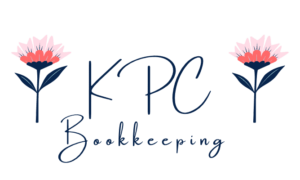Okay, everyone, let’s dive into a topic that’s frequently on your minds: should you transition from using spreadsheets to adopting accounting software like Quickbooks?
A lot of folks ask me if it’s okay to stick with spreadsheets. Some even feel ashamed for not being “professional” enough to use accounting software. Let me be clear, there’s no room for shame here. I’ve seen beautifully organized spreadsheets and messy Quickbooks, and everything in between, and I don’t pass judgment in any situation (well, except for when a bookkeeper leaves behind a mess – that’s on them). Remember, you don’t need to be an accountant to be a business owner; you just need the knowledge I’m sharing with you!
So, the answer to “Is it okay to still use spreadsheets?” is a resounding yes. It’s absolutely okay. Most people start with spreadsheets, and that’s a great place to begin. See my previous post regarding my perspective on spreadsheets HERE
Let’s talk about some pros and cons of spreadsheets.
Pros:
- They’re free when using tools like Google Sheets, Numbers, or existing Microsoft Office Suite.
- Getting started is a breeze – open a new spreadsheet, add columns for date, description, vendor, amount, and you’re good to go.
- Basic spreadsheet skills are common, and countless YouTube tutorials are available for quick learning.
- Spreadsheets warm my heart; they’re easy to navigate, and I know I can set up an organized system.
Cons:
- Time-consuming formatting and checking for broken formulas.
- Limited capability for generating detailed reports or assessing your business’s financial health.
So, when should you consider making the switch from spreadsheets to accounting software? Well, if you’re asking, it might be time. For example, if you find yourself spending more time fixing formatting and formulas than entering data or struggle to quickly assess your top-selling products or services, it might be a sign to upgrade.
Accounting software like Quickbooks can take your financial tracking to the next level. They offer a range of benefits, including automated bank feeds, categorization rules, and simplified reporting. Bookkeepers might also prefer working with accounting software, which could be a cost-saving measure if you keep things clean. However, there is a learning curve and potential frustration involved, but it’s a worthwhile investment.
Now, let’s talk about costs. Quickbooks Online (QBO) may suggest a “Plus” subscription at $85/month, but many new business owners can work perfectly well with a “Simple Start” subscription at just $30/month. I’ve included a link to explore different subscription levels. For those looking for budget-friendly options, Xero is about half the cost of QBO (link provided), and there’s also Wave, which is free but limited in functionality (link provided).
So, there you have it. The choice between spreadsheets and accounting software is entirely yours, and there’s no need to rush. Remember, you’re the boss, and you get to decide what works best for your business. Embrace what suits your needs and keeps your financial management efficient.
